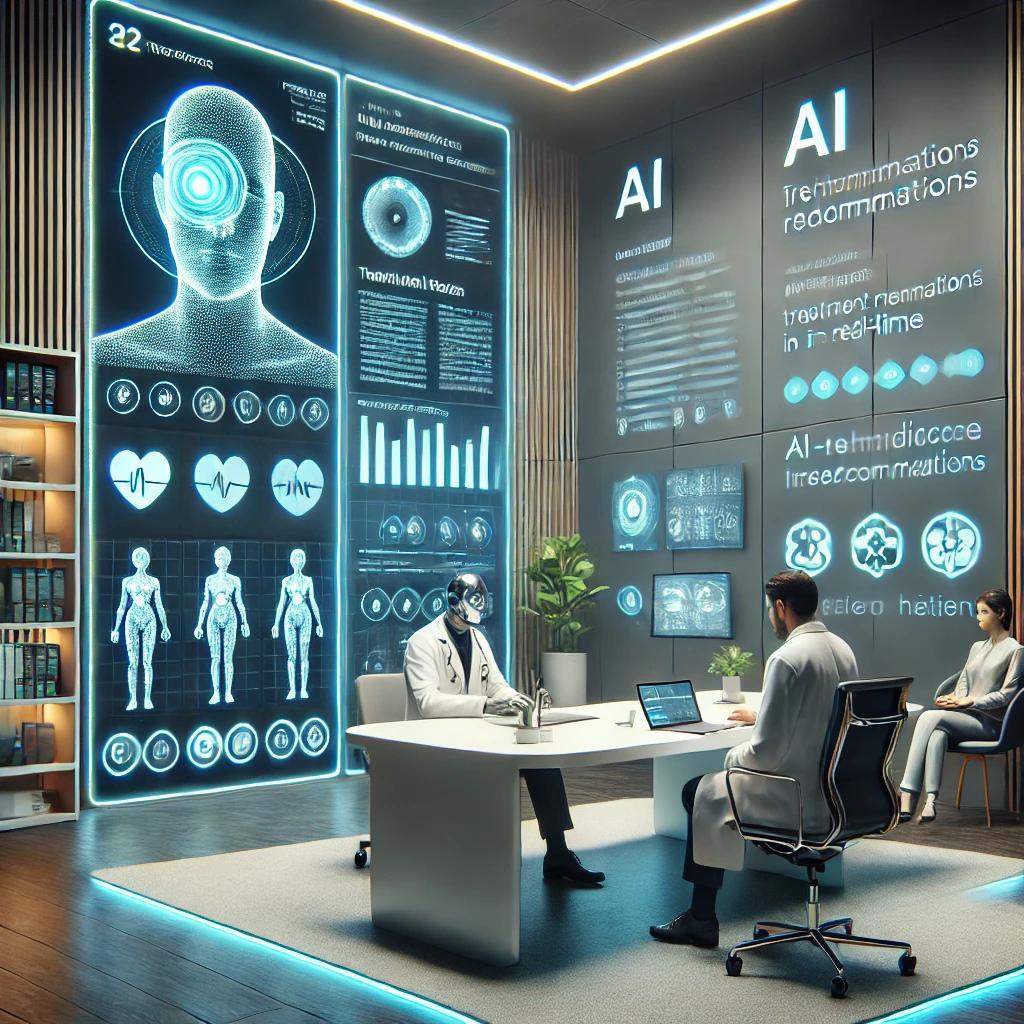
AI enhances patient care through virtual assistants that assist with documentation, telemedicine improvements, and AI-driven mental health tools. AI-powered medical scribes reduce doctor workload, while AI chatbots support mental health patients with 24/7 counseling.
AI in the Doctor's Office: A Guide to Smart
Healthcare
Chapter 4: Enhancing Patient Care with AI
4.1 Virtual
Assistants for Physicians
AI-powered virtual assistants (VAs) help
physicians by automating documentation, organizing medical notes, and
offering real-time clinical decision support.
1. AI in Medical
Note-Taking and Scribing
Doctors spend up to 50% of their time on
paperwork. AI scribing tools transcribe conversations, summarize
consultations, and update electronic health records (EHRs)
automatically.
✅ Example: Nuance's Dragon Medical One AI records
doctor-patient interactions and generates real-time documentation,
reducing charting time by 45%.
✅ Impact on Doctor's Offices:
Reduces administrative burden, allowing doctors to focus on
patients.
Improves accuracy of patient records.
Saves hours of
daily paperwork.
✅ Case Study: AI in Documentation
Massachusetts General Hospital implemented Nuance AI, cutting physician
documentation time by 30%.
2. AI for Real-Time Clinical Decision
Support
AI tools analyze patient symptoms, lab results, and medical
history to offer data-driven treatment suggestions.
✅ Example:
IBM Watson for Oncology suggests personalized cancer treatments based on
patient history and the latest research.
✅ Impact on Doctor's
Offices:
Helps doctors make faster, evidence-based decisions.
Reduces diagnostic errors by cross-referencing vast medical databases.
✅ Case Study: AI-Assisted Treatment Recommendations
Cleveland
Clinic's AI decision-support tool improved diagnostic accuracy by 18%.
4.2 AI in Telemedicine
AI enhances virtual healthcare services by
automating patient assessments, symptom analysis, and follow-ups.
1. AI-Powered Symptom Checkers for Telehealth
Before a virtual
consultation, AI pre-assesses symptoms and suggests possible conditions.
✅ Example: Babylon Health AI analyzes patient symptoms and provides
preliminary assessments before telehealth visits.
✅ Impact on
Doctor's Offices:
Speeds up telehealth triage.
Ensures
critical cases get priority appointments.
✅ Case Study: AI in
Telemedicine
The Mayo Clinic AI-assisted triage tool reduced
unnecessary telehealth visits by 25%.
2. AI for Remote Image and Lab
Result Interpretation
Doctors can upload medical images or lab
results to AI platforms for instant analysis.
✅ Example:
Dermatology AI (Google's AI for skin conditions) detects melanoma with
dermatologist-level accuracy.
✅ Impact on Doctor's Offices:
Enhances remote diagnostic capabilities.
Reduces need for
in-person visits for minor cases.
4.3 Mental Health and AI
AI is
helping bridge the mental healthcare gap by offering 24/7 virtual
therapy and early detection of mental health disorders.
1.
AI-Powered Chatbots for Therapy and Mental Health Support
AI therapy
bots offer cognitive behavioral therapy (CBT) techniques, helping
patients manage anxiety, depression, and stress.
✅ Example:
Woebot AI provides chat-based mental health support, reducing symptoms
of depression in clinically validated studies.
✅ Impact on
Doctor's Offices:
Provides immediate support between therapy
sessions.
Reduces mental health appointment backlogs.
✅ Case
Study: AI in Mental Health
Stanford University's study showed
that AI chatbots helped reduce anxiety symptoms by 30%.